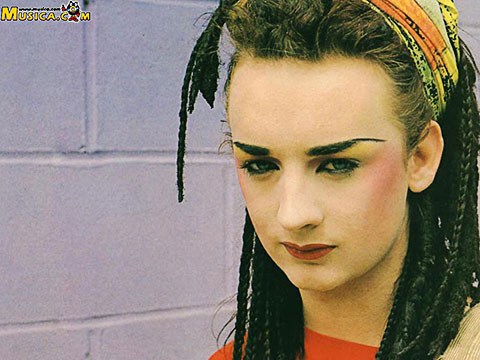“Do You Really Want to Hurt Me” – Culture Club

“Do You Really Want to Hurt Me,” released by Culture Club in 1982, is a song that not only defined the band’s career but also became an iconic piece of 1980s pop music. With its haunting melody, poignant lyrics, and Boy George’s distinctive and soulful vocals, the song explores themes of vulnerability, heartache, and acceptance. This essay delves into the emotional depth and cultural significance of the song, highlighting its impact on both the music industry and societal perceptions.
At its core, “Do You Really Want to Hurt Me” is a lament of emotional pain and longing. The lyrics, “Do you really want to hurt me? / Do you really want to make me cry?” express a profound sense of betrayal and sorrow. These lines resonate with anyone who has experienced the anguish of a broken relationship, capturing the universal feeling of heartache. The vulnerability in Boy George’s voice adds a layer of authenticity to the song, making it a deeply personal and relatable experience for listeners.
The song’s verses further explore the complexities of love and pain. Lines such as “In my heart, the fire’s burning / Choose my color, find a star” and “Precious people always tell me / That’s a step, a step too far” reflect a longing for acceptance and understanding amidst the turmoil of emotional conflict. The imagery of fire and stars conveys the intensity of emotions, while the notion of being judged or misunderstood by “precious people” underscores the alienation often felt in the face of societal norms and expectations.

Musically, “Do You Really Want to Hurt Me” blends elements of reggae and pop, creating a sound that is both soothing and melancholic. The reggae influence, with its laid-back rhythm and offbeat accents, contrasts with the song’s emotional intensity, adding a unique texture to the overall composition. This fusion of genres was innovative at the time and showcased Culture Club’s ability to transcend traditional pop boundaries, appealing to a diverse audience.
The song’s release during the early 1980s also holds significant cultural implications. Boy George’s androgynous appearance and open expression of his identity challenged conventional gender norms and stereotypes. This visibility played a crucial role in the broader movement towards greater acceptance and understanding of LGBTQ+ individuals. “Do You Really Want to Hurt Me” became more than just a song; it was a statement of individuality and a call for compassion and acceptance.
![fireworkers!: [Flashback] Boy George - The Crying Game](https://blogger.googleusercontent.com/img/b/R29vZ2xl/AVvXsEgs4kGaMfTQDyVqcshR4zgYe3dKjEwq89e-3PYDCm1LzK8VM2lOpCJ5ziphPRM_K0E6JKfFLwl_Jils2feaHVehEH04B_OF4YR5CgcKCmh69MMK1sZTu4M7XxDqm1vrOx7QOM_TcVL17aM/s1600/Boy%252BGeorge.jpg)
The music video for “Do You Really Want to Hurt Me” further amplified its impact. Directed by Julien Temple, the video features Boy George in various settings, including a courtroom and a club, symbolizing the judgment and scrutiny faced by those who defy societal norms. The imagery of Boy George standing alone in the spotlight, contrasted with scenes of a hostile audience, visually reinforces the song’s themes of vulnerability and resilience.
The enduring popularity of “Do You Really Want to Hurt Me” can be attributed to its emotional depth and the cultural conversations it sparked. Its timeless message of longing for acceptance and understanding continues to resonate with audiences today. The song’s success also paved the way for Culture Club to become one of the defining bands of the 1980s, with Boy George emerging as a cultural icon.

In conclusion, “Do You Really Want to Hurt Me” by Culture Club is a poignant and culturally significant song that captures the essence of emotional vulnerability and the quest for acceptance. Through its heartfelt lyrics, innovative musical composition, and the bold persona of Boy George, the song transcends its era, leaving a lasting legacy. It serves as a reminder of the power of music to express deep emotions and challenge societal norms, fostering greater empathy and understanding in the process.












